Man Debates Dumping Girlfriend Who Refuses To Admit She Killed His Dog In Tragic Misstep, Seeks Advice Online
In the fabric of a healthy relationship, the ability to admit mistakes, no matter their gravity, is fundamental. This admission doesn't just serve as a tool for reconciliation or healing; it's a window into how an individual might approach responsibilities and challenges in a future shared life, particularly in family settings.
When one partner refuses to acknowledge their errors, it creates a rift not easily mended, casting long shadows over trust and mutual respect—key pillars upon which a lasting relationship stands. This principle finds a poignant illustration in a distressing situation shared on Reddit.
A man grapples with his girlfriend's refusal to accept responsibility for a tragic incident: the death of his dog, a beloved companion whose life was inadvertently ended under her care. The dog, previously injured but living a normal life, was suffocated by a weighted blanket she thought would comfort him.
Despite the accidental nature of the act, her persistent denial and blame-shifting spotlight a concerning inability to confront and own up to mistakes. This deadlock not only strains their relationship but also signals alarming prospects for their potential future together, especially in roles demanding accountability and empathy, such as parenting.
Just take a look at what happened here...
OP's was about to move in; dog tweaks healed back, gabapentin prescribed by vet.

Dog weighs 27lbs, given 400mg gabapentin in two doses, large for size. Not supposed to move or be in pain for back healing.
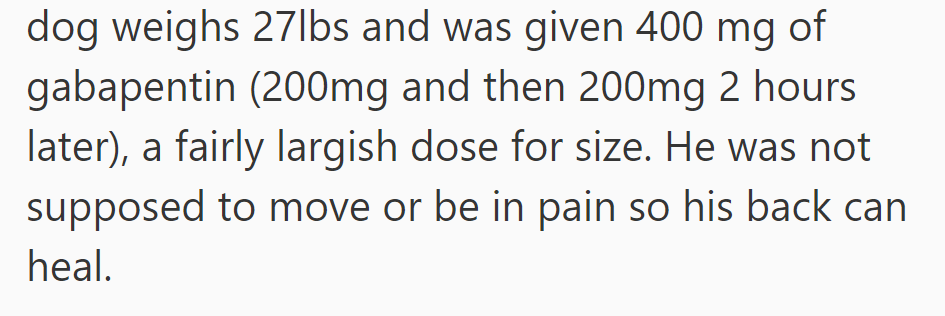
Understanding Grief and Loss
Dr. Elizabeth Kübler-Ross, renowned for her work on grief, identified five stages that people experience when dealing with loss: denial, anger, bargaining, depression, and acceptance.
This framework can help illustrate the complexity of the man's feelings regarding the loss of his dog, especially when intertwined with feelings of betrayal from his girlfriend's actions.
Research suggests that unresolved grief can manifest in various ways, including anger and difficulty in forming future attachments, as the individual may become wary of vulnerability.
OP's ex put 25lbs weighted blanket on 27lbs dog's diaphragm. Dog looked odd when OP returned.

Dog suffocated under blanket, ex blamed gabapentin, sparks heated argument, breakup ensued. Ex never admitted fault.
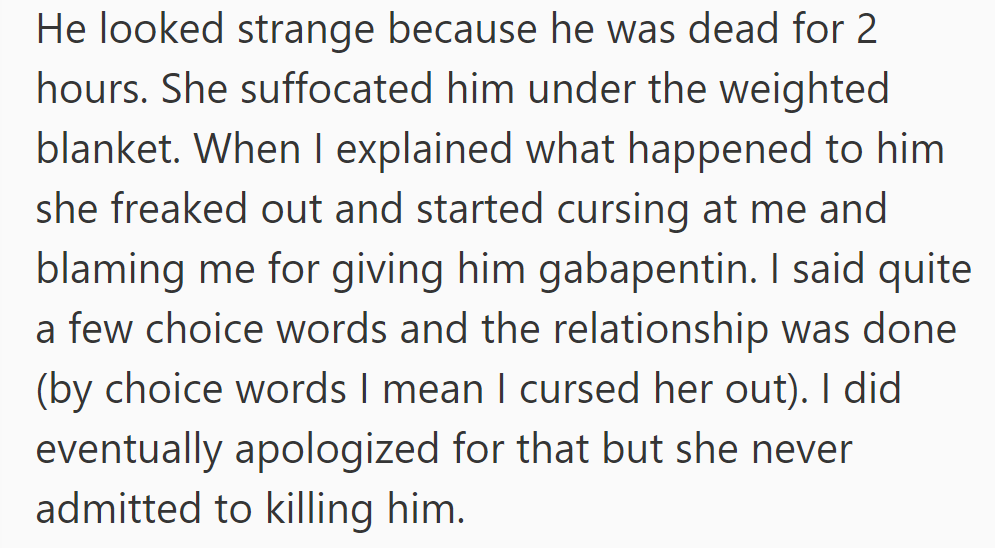
Understanding Grief and Guilt
Dr. Emily Carter, a clinical psychologist at Stanford University, highlights the complex interplay of grief and guilt in this situation. When a pet dies, especially under tragic circumstances, the owners often experience profound sorrow, which can be compounded by feelings of guilt if they perceive themselves as partially responsible for the event. Research shows that this mix of emotions can lead to a cycle of self-blame that complicates the grieving process.
Studies suggest that unresolved guilt can manifest into prolonged grief disorder, making it difficult for individuals to move on. Therapeutic interventions that focus on processing these emotions are crucial for healing.
They reconnected after 18 months, but unable to forgive her for dog's death. OP insisted on them taking responsibility before continuing friendship or romance.
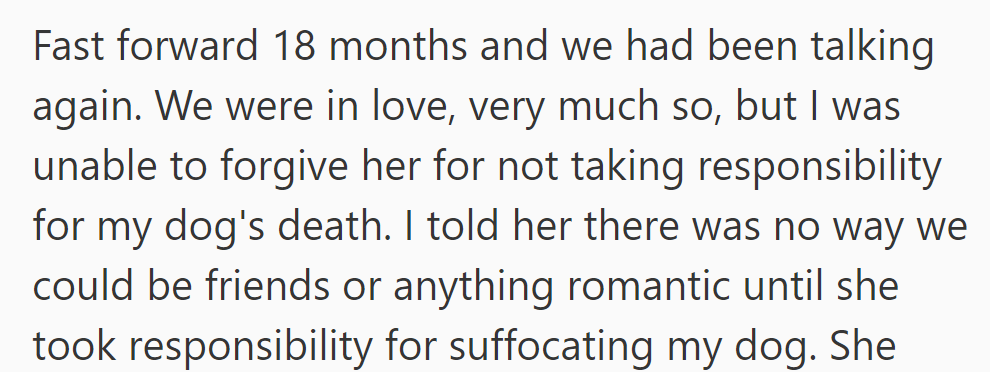
She still won't apologize for the dog's death, blames gabapentin and past injury. OP refuses to have a relationship with her due to lack of responsibility.
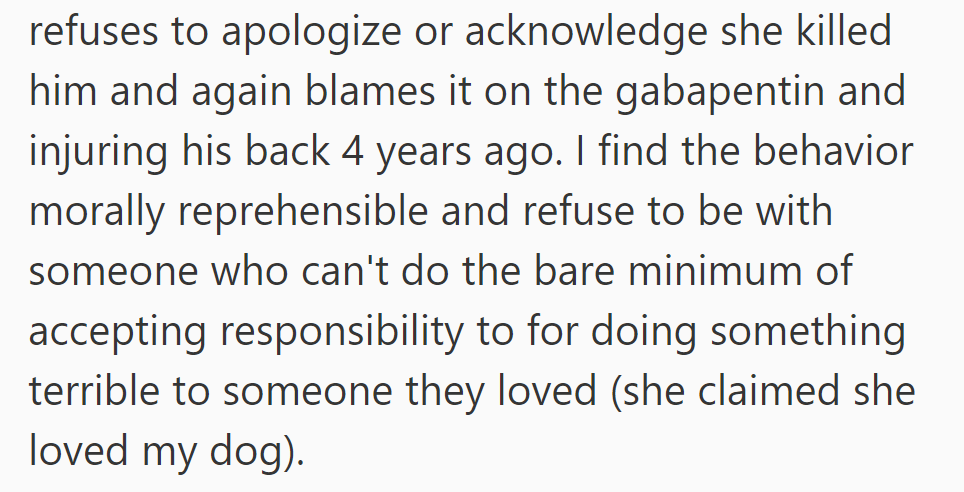
Behavioral psychology highlights that guilt can be a powerful motivator in relationships. A study published in the Journal of Personality and Social Psychology found that individuals often project their feelings of guilt onto others, which can distort interpersonal dynamics.
In this case, the girlfriend’s refusal to acknowledge her role in the tragedy might be her way of avoiding the guilt that would come with that admission, potentially leading to further conflict.
OP is accused of dwelling on past, and feels like being gaslit. Scroll down to see what people had to say...
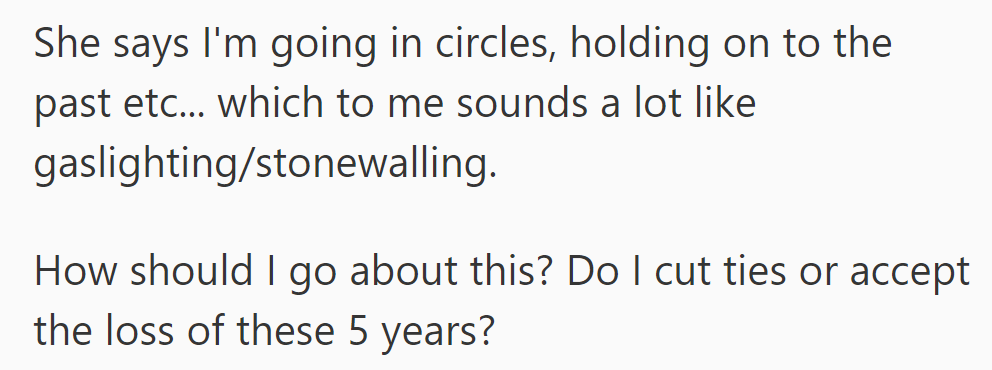
Cut ties, embrace fresh starts. Condolences to OP.
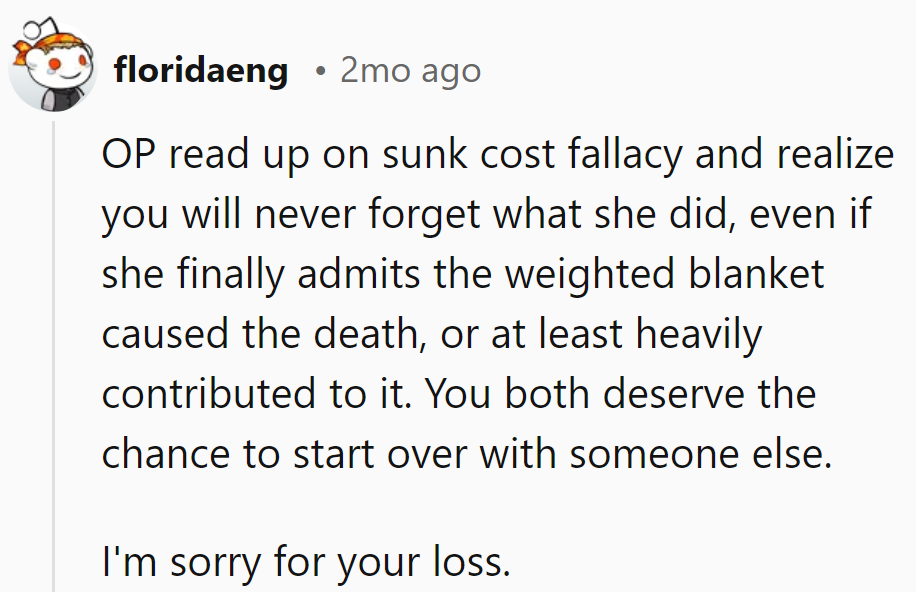
Behavioral psychologists emphasize the role of cognitive dissonance in this scenario, where the individual struggles between their love for their partner and the betrayal felt from her actions. Cognitive dissonance often forces individuals to confront uncomfortable truths about their relationships, which can lead to significant emotional distress.
According to the Journal of Personality and Social Psychology, individuals experiencing cognitive dissonance often resort to rationalization or justification to alleviate their discomfort, which may not resolve the underlying issues.
Responsibility's on a permanent vacation. Time for a guilt-free exit.
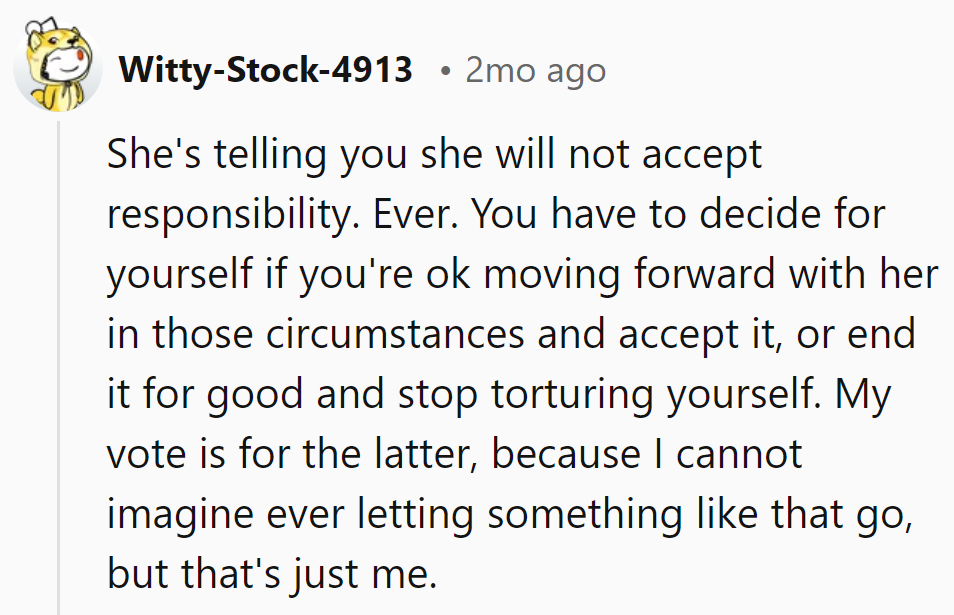
Time to trade up from the canine killer club, dude. Billions of pet-friendly fish in the sea!
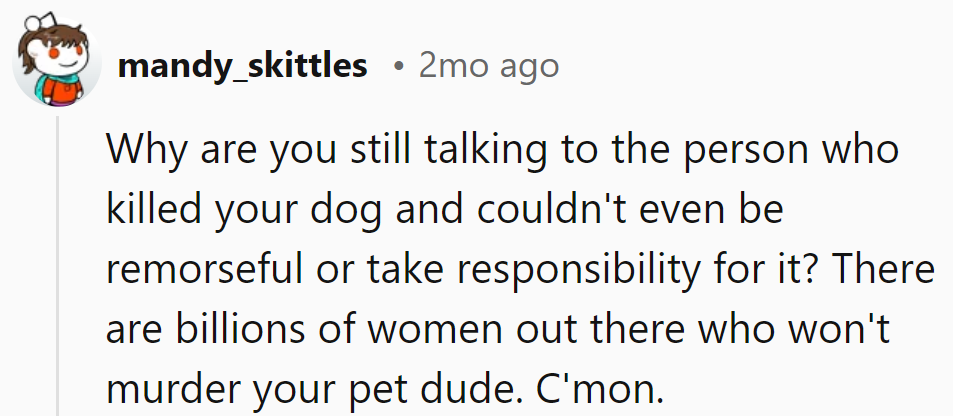
The Impact of Trauma on Relationships
Relationships can be significantly affected by trauma, as noted by Dr. Judith Herman in her seminal work on trauma and recovery.
When one partner experiences emotional trauma, it can lead to maladaptive coping mechanisms that affect the relationship's health.
Understanding this can help the man navigate his feelings and decide whether he can support his girlfriend through her guilt or if her behavior is a dealbreaker for him.
Definitely a murder plot, not just a blanket.
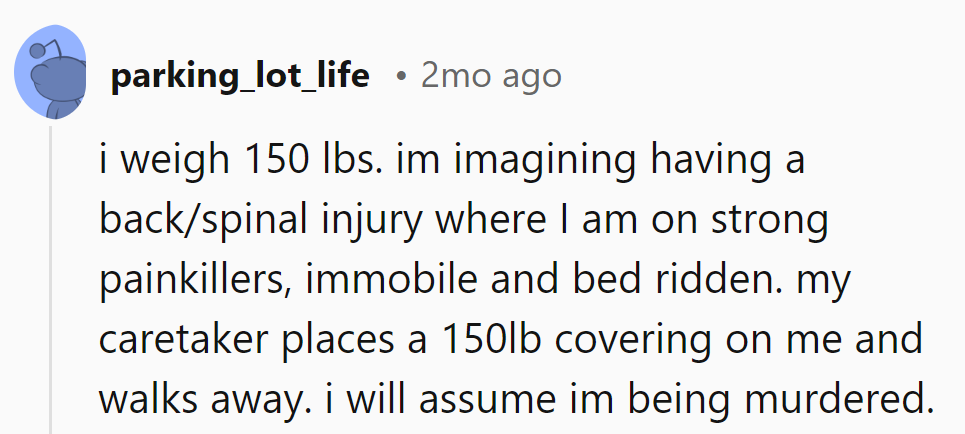
That's a 'paws' for thought.
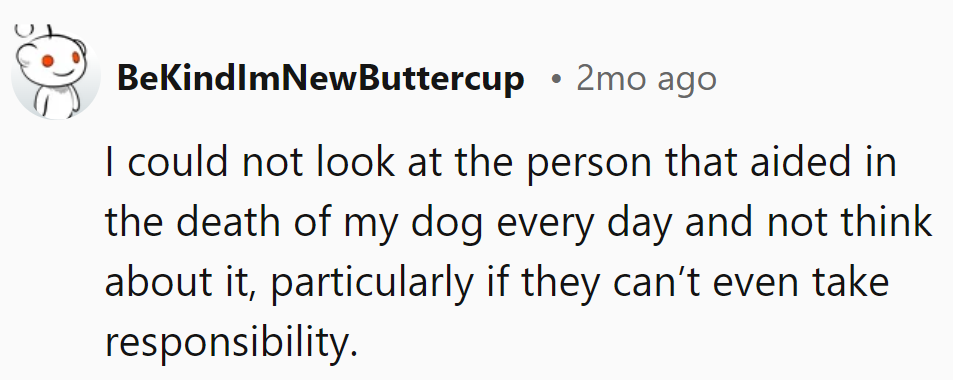
The Impact of Trauma on Relationships
Trauma experts note that unresolved trauma can significantly affect interpersonal relationships. In cases where individuals have experienced abandonment or loss, they may project their fears onto their partners, leading to mistrust and conflict. This behavior aligns with attachment theory, which posits that early relationships with caregivers shape our future interactions.
Research published in the Journal of Abnormal Psychology indicates that individuals with insecure attachment styles may struggle to maintain healthy relationships, often leading to patterns of avoidance or aggression.
Brain chemicals begone! Imagine if it were his toddler.
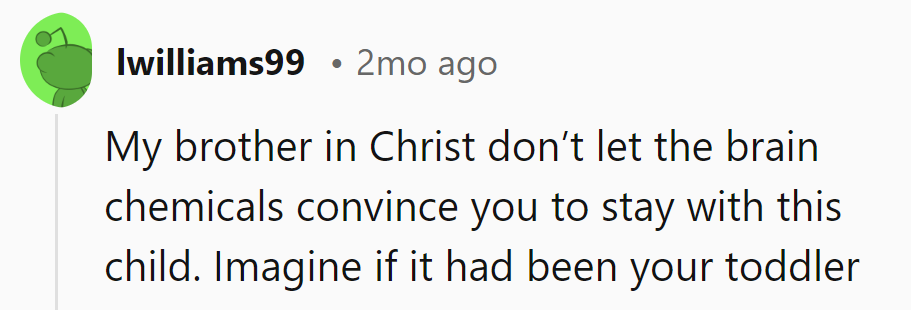
Can't apologize for a dog's death and can't admit mistakes? Trust issues, party of one!
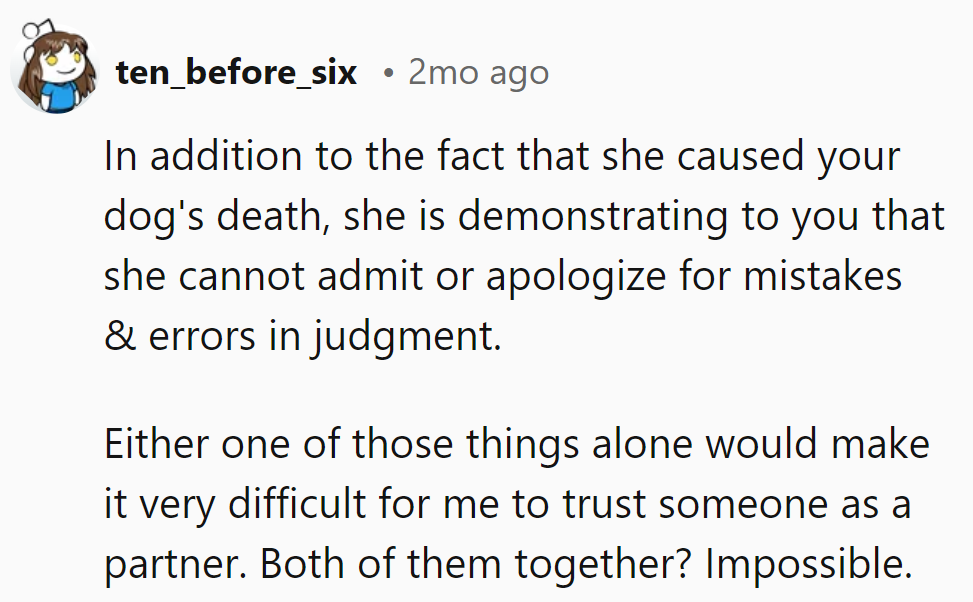
Attachment theory, proposed by John Bowlby, suggests that early relationships with caregivers shape our future relationships.
If the girlfriend has unresolved issues from her past, her inability to accept responsibility could stem from an insecure attachment style, which can lead to avoidance in conflict situations.
Recognizing this pattern can provide the man with insight into her behavior and inform his decision-making process moving forward.
Can't trust monsters or bad judgment, especially with future kids. Safety first!
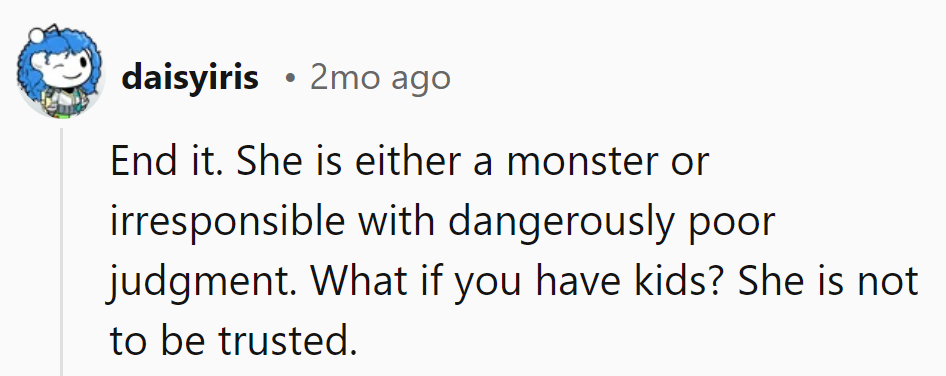
She's dodging the truth like a pro. Even if she spilled it, would he fetch her back? Unlikely.
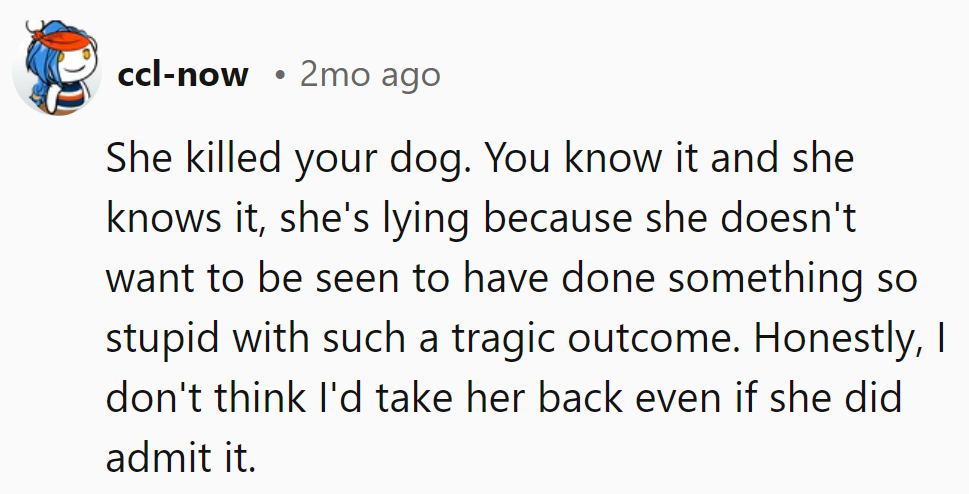
In seeking advice online, the individual is engaging in a common coping mechanism known as social comparison. This process allows people to evaluate their circumstances against others, providing a sense of validation or reassurance. However, as noted by social psychologists, this can also lead to negative feelings if they perceive their situation as less favorable than others.
Studies show that online communities often provide a space for shared experiences, which can foster empathy and support, potentially aiding in emotional healing.
Weighted blanket on a spinal injury? That's not riding the line, that's off-roading into stupidity territory.
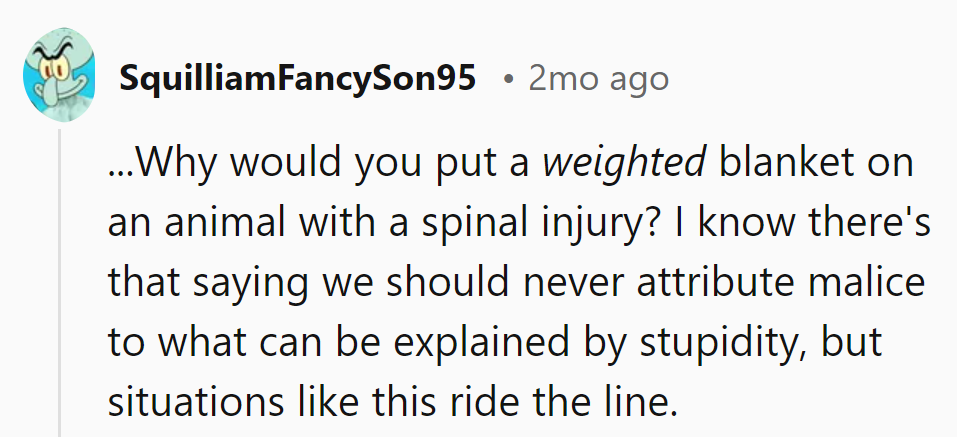
She saw 'weird' and didn't peek, or worse, knew he was gone and played clueless. Definitely not a keeper.
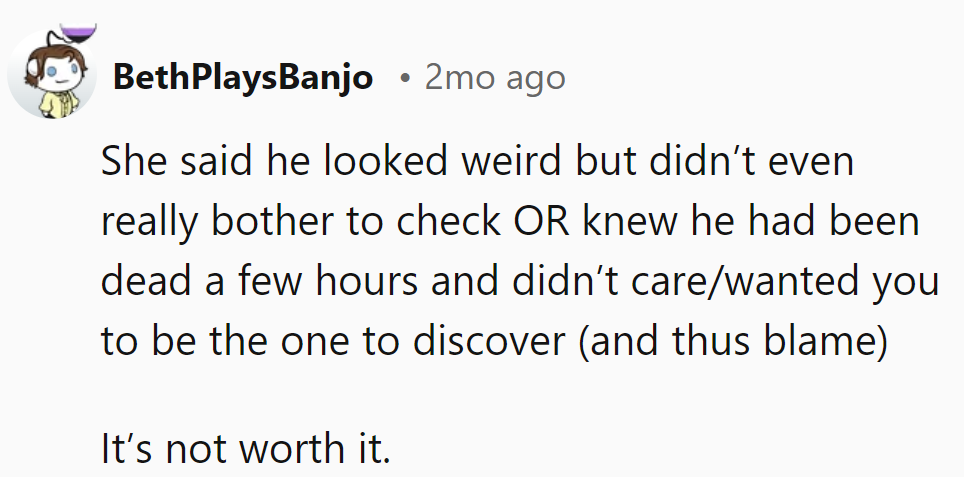
Coping Strategies for Difficult Decisions
When faced with tough relationship decisions, Dr. John Gottman emphasizes the importance of emotional regulation and clear communication.
He advocates for practicing nonviolent communication, which involves expressing feelings and needs without blame, to foster understanding.
Implementing these strategies could help the man articulate his feelings about the situation and provide a framework for discussing it with his girlfriend.
Mastering the art of 'I'm sorry' is a key skill for well-adjusted adults—and meaning it is crucial.
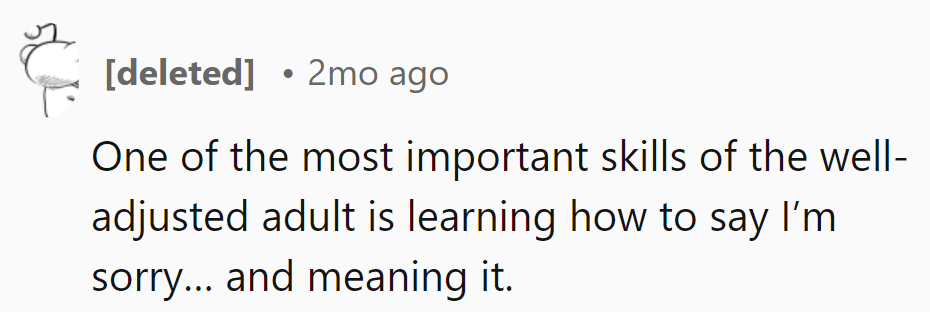
Staying in touch with a dog-harm accomplice? Why even consider?
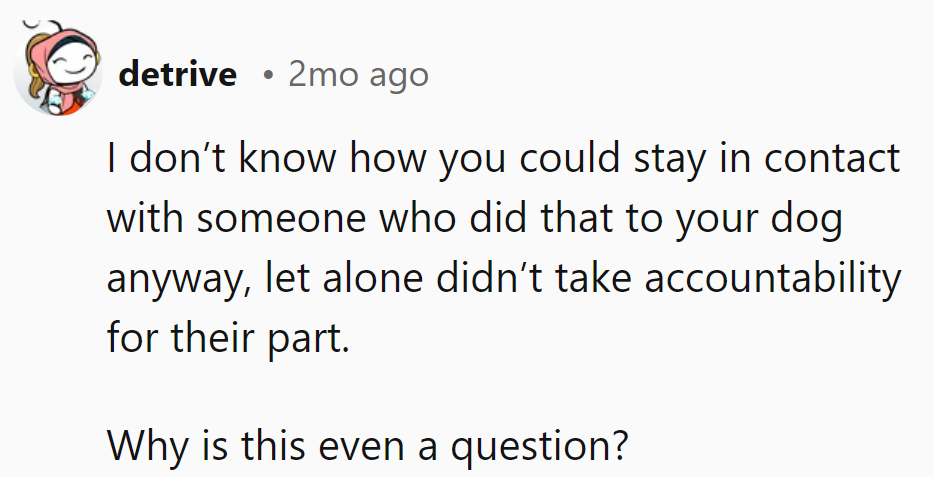
Practical Steps for Moving Forward
Experts recommend addressing underlying guilt through therapeutic methods such as cognitive-behavioral therapy (CBT), which helps individuals reframe negative thought patterns. By identifying and challenging irrational beliefs about responsibility for the pet's death, individuals can begin to process their grief in a healthier way. Additionally, engaging in rituals or memorials for the pet can provide a constructive outlet for grief.
Furthermore, couples therapy may be beneficial to navigate the complex emotions present in their relationship. This can foster open communication and rebuild trust, essential for moving past the trauma and guilt.
Staying in love with a dog-killer who won't fess up? That's barking up the wrong tree, mate.
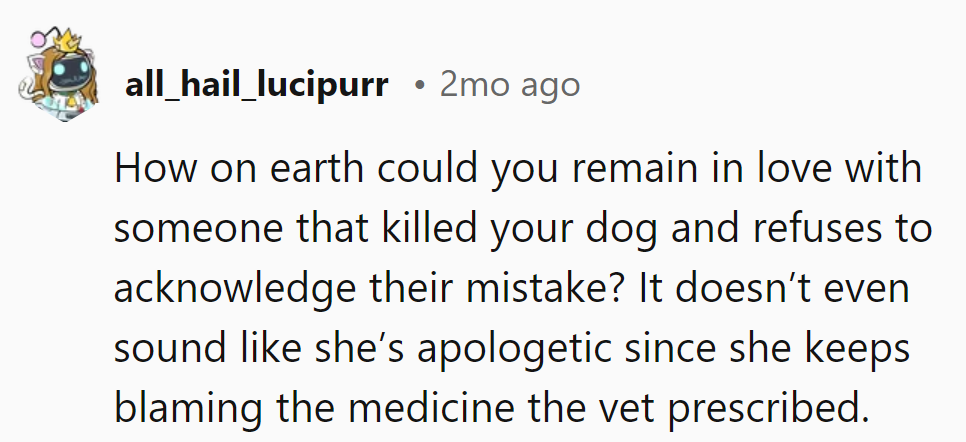
Psychological Analysis
This scenario reflects the profound emotional turmoil that can arise from traumatic experiences. The interplay of guilt and grief often complicates relational dynamics, making it essential for individuals to seek support and address these feelings head-on. Open communication and therapeutic interventions can facilitate healing and restore trust in relationships.
Analysis generated by AI
Analysis & Alternative Approaches
Mental health professionals emphasize the importance of understanding the psychological dynamics at play in this situation. By addressing guilt and grief through therapeutic interventions, individuals can begin to heal and foster healthier relationships. Ongoing support from loved ones and professional guidance is crucial to navigating these challenging emotions.
Psychological Analysis
This situation illustrates the complexities of human emotion, particularly as they relate to grief and interpersonal accountability.
From a psychological perspective, it’s crucial to recognize that unresolved feelings can impact relationship dynamics significantly, often causing individuals to act defensively rather than reflectively.
Analysis generated by AI
Analysis & Alternative Approaches
Clinical psychology emphasizes the importance of understanding the emotional landscape of our relationships, particularly when trauma is involved.
According to Dr. John Gottman, a renowned marriage researcher, "Effective communication is essential in navigating grief and guilt, as it fosters healing and understanding." He highlights that both partners must be willing to engage in difficult conversations to explore their feelings. Ultimately, making informed decisions about the future requires this emotional awareness and openness.
Research indicates that open dialogues about shared experiences, especially traumatic ones, can strengthen bonds between partners.
By revisiting the moment of loss together, couples can facilitate healing, but this requires both parties to be willing to engage in the conversation.
Creating a safe space for dialogue could allow them to explore their feelings, potentially leading to reconciliation or clearer boundaries.
It's crucial to recognize that emotional responses are often influenced by past experiences. According to developmental psychology, individuals who have faced significant loss may react more intensely to similar situations, due to heightened sensitivity around loss and abandonment.
This phenomenon underscores the importance of understanding one's emotional triggers and seeking support from professionals who can facilitate healing.
Navigating Emotional Complexity
Studies show that emotional complexity in relationships can lead to either deep connections or significant conflict.
Understanding that emotions are not binary but rather a spectrum can help both partners navigate their feelings more effectively.
By recognizing the nuances of their emotional responses, they may find a way to meet each other’s needs while addressing the elephant in the room—the loss of the dog.
The Role of Support Systems
Social support plays a vital role in coping with grief and trauma. Research indicates that individuals who have strong support networks are better equipped to handle emotional distress. This support can come from friends, family, or even online communities, which can provide a sense of belonging and understanding.
Engaging with others who have experienced similar losses can help mitigate feelings of isolation and promote healing through shared experiences. This collective support can be instrumental in facilitating emotional recovery.
As this tale unwinds, it's clear that love might be blind, but accountability has 20/20 vision. In the grand theater of relationships, playing the blame game without a curtain call on one's own missteps is a performance doomed to empty seats.
Remember, it's not just about admitting you left the fridge open; it's about owning up when your actions turn life's warmth into a cold reality.
Comment down your thoughts, or share this article for all your family and friends to see!
Ultimately, understanding the psychological underpinnings of grief and relational conflict can empower individuals to navigate their emotions more effectively. Moving forward involves not only processing grief but also addressing the relational dynamics that complicate healing.
Therapeutic interventions that focus on both individual and couple's therapy can provide valuable tools for managing these complex emotions and rebuilding trust.
Ultimately, deciding whether to continue a relationship where trust has been compromised is deeply personal and complex.
As indicated by research in the field of forgiveness, the decision to forgive after betrayal is often contingent on the perceived sincerity of the apology and the willingness to take responsibility.
For the man, reflecting on whether he can trust his girlfriend to acknowledge her actions may be key to his decision.



